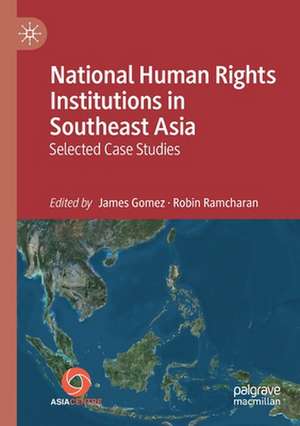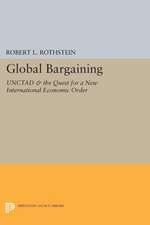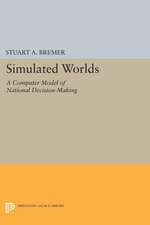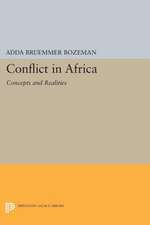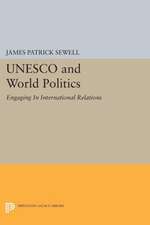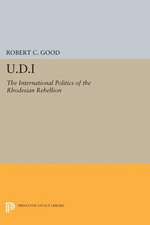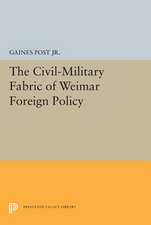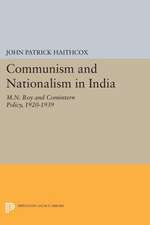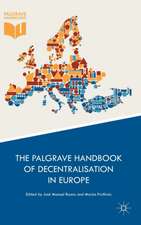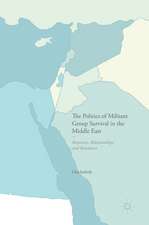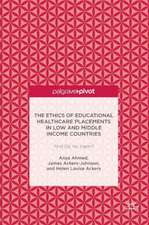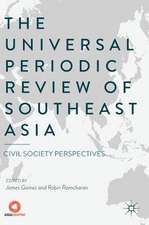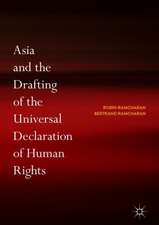National Human Rights Institutions in Southeast Asia: Selected Case Studies
Editat de James Gomez, Robin Ramcharanen Limba Engleză Paperback – 30 ian 2021
| Toate formatele și edițiile | Preț | Express |
|---|---|---|
| Paperback (1) | 889.12 lei 6-8 săpt. | |
| Springer Nature Singapore – 30 ian 2021 | 889.12 lei 6-8 săpt. | |
| Hardback (1) | 894.34 lei 6-8 săpt. | |
| Springer Nature Singapore – 30 ian 2020 | 894.34 lei 6-8 săpt. |
Preț: 889.12 lei
Preț vechi: 1084.29 lei
-18% Nou
Puncte Express: 1334
Preț estimativ în valută:
170.14€ • 175.79$ • 141.53£
170.14€ • 175.79$ • 141.53£
Carte tipărită la comandă
Livrare economică 19 martie-02 aprilie
Preluare comenzi: 021 569.72.76
Specificații
ISBN-13: 9789811510762
ISBN-10: 9811510768
Pagini: 300
Ilustrații: XXV, 300 p. 5 illus.
Dimensiuni: 148 x 210 mm
Greutate: 0.39 kg
Ediția:1st ed. 2020
Editura: Springer Nature Singapore
Colecția Palgrave Macmillan
Locul publicării:Singapore, Singapore
ISBN-10: 9811510768
Pagini: 300
Ilustrații: XXV, 300 p. 5 illus.
Dimensiuni: 148 x 210 mm
Greutate: 0.39 kg
Ediția:1st ed. 2020
Editura: Springer Nature Singapore
Colecția Palgrave Macmillan
Locul publicării:Singapore, Singapore
Cuprins
1. National Human Rights Institutions in Southeast Asia: Challenges to the Protection of Human Rights.- 2. National Human Rights Institutions: From Idea to Implementation.- 3. NHRIs in Southeast Asian States: The Necessary Foundation for an Efficient ASEAN Intergovernmental Commission on Human Rights (AICHR).- 4. National Human Rights Institutions and the United Nations Human Rights Treaty Body System: A Rebuttal to the Sceptics.- 5. Assessing the Effectiveness of the Myanmar National Human Rights Commission in the Wider Regional Geo-Political Context.- 6. From Transition to Government Accountability: Opportunities for the Myanmar National Human Rights Commission.- 7. Komnas HAM: Discrepancies between its Mandate and the Indonesian Constitutional Framework.- 8. Strengthening Komnas HAM and Building Synergies with other National State Institutions on Human Rights.- 9. The Protection Capacities of NHRIs in The Philippines,Thailand and Timor Leste.- 10. Advocating for a National Human Rights Institution in Singapore.- 11. Mental Health and Human Rights: The Role of Komnas HAM.- 12. Bridging Gaps and Hopes: Malaysia’s National Human Rights Commission and Rights Related to SOGIESC.- 13. Komnas HAM and the Land Rights of Indigenous Peoples: National Enquiry as a New Mechanism for the Settlement of Disputes.- 14. The Protection Capacities of NHRIs.
Notă biografică
James Gomez is Regional Director, Asia Centre (Bangkok, Thailand and Johor Bahru, Malaysia) - a not-for-profit organisation that seeks to create human rights impact in the region. Dr.Gomez is a communications and human rights specialist having served in different academic and leadership roles in the last 25 years working for international NGOs, intergovernmental organizations, public and private universities, research institutes and think-tanks. He represents the Centre in media and public speaking engagements and builds relationships with key stakeholders around the world.
Textul de pe ultima copertă
This book reviews Southeast Asia’s National Human Rights Institutions (NHRIs) as part of an emerging assessment of a nascent regional human rights architecture that is facing significant challenges in protecting human rights. The book asks, can NHRIs overcome its weaknesses and provide protection, including remedies, to victims of human rights abuses? Assessing NHRIs’ capacity to do so is vital as the future of human rights protection lies at the national level, and other parts of the architecture—the ASEAN Intergovernmental Commission on Human Rights (AICHR), and the international mechanism of the Universal Periodic Review (UPR)—though helpful, also have their limitations. The critical question the book addresses is whether NHRIs individually or collaboratively provide protection of fundamental human rights. The body of work offered in this book showcases the progress of the NHRIs in Southeast Asia where they also act as a barometer for the fluid political climate of their respectivecountries. Specifically, the book examines the NHRIs’ capacity to provide protection, notably through the pursuit of quasi-judicial functions, and concludes that this function has either been eroded due to political developments post-establishment or has not been included in the first place. The book’s findings point to the need for NHRIs to increase their effectiveness in the protection of human rights and invites readers and stakeholders to find ways of addressing this gap.
James Gomez is Regional Director, Asia Centre (Bangkok, Thailand and Johor Bahru, Malaysia) - a not-for-profit organisation that seeks to create human rights impact in the region. Dr.Gomez is a communications and human rights specialist having served in different academic and leadership roles in the last 25 years working for international NGOs, intergovernmental organizations, public and private universities, research institutes and think-tanks. He represents the Centre in media andpublic speaking engagements and builds relationships with key stakeholders around the world.
Robin Ramcharan is Executive Director, Asia Centre, Bangkok, Thailand. He specialises in human rights, intellectual property and security issues in Southeast Asia. Dr. Ramcharan is also Professor of International Relations with an extensive teaching and publications record. He has worked over the past two decades in the not-for profit sector, international organisations, the private sector and in research institutes and think tanks. In Bangkok, Dr. Ramcharan represents the Centre in interaction with external partners and oversees the various research and publication projects.
Caracteristici
Examines the quasi-judicial function of NHRIs in Southeast Asia Showcases the progress of the NHRIs in Southeast Asia which provides a barometer as to the fluid political climate of their respective countries Addresses whether NHRIs individually or collaboratively provide protection of fundamental human rights
